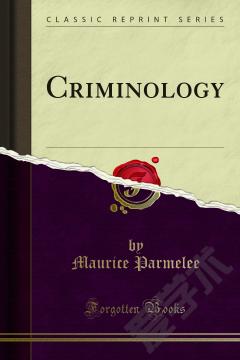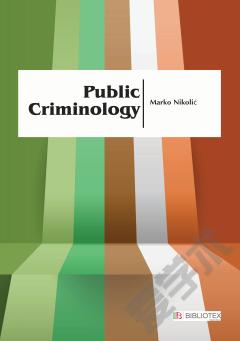Criminology
A decade has passed since my book on the applications of criminology to criminal law and procedure was published. It grew out of several years of experience with criminals in courts and prisons in this country, and criminological research in Europe. At that time it was my intention to follow that book with a similar one on the applications of criminology to penal treatment.Since then the biological, psychological, and social sciences upon which criminology is based have advanced rapidly, and much work has been done within the criminological field itself. Hence much of the criminology of a decade or more ago is already obsolete. I have, therefore, abandoned my original plan, and, having commenced at the beginning of the subject, have attempted a comprehensive survey of the whole field of criminology.Much of the criminological writing heretofore has been more or less unilateral in its character. This has been due almost always to one-sided knowledge, sometimes also to prejudices and preconceived notions. For example, some writers have claimed that crime is due entirely to social causes, others have asserted that it is due entirely or almost entirely to the traits of the criminal himself.There is now available a much larger fund of knowledge from which to construct a criminological theory and to devize a practical program. Consequently there is no longer any excuse for unilateral theories of crime. It is obvious that crime cannot be attributed to any one group of causes. Furthermore, it is manifestly impossible to measure precisely the extent to which any one factor gives rise to crime. Criminological theory today is more cautious and catholic, and does less violence to the facts. It is, therefore, more accurate though less pretentious than some of the older criminology.The present work is a companion volume to my Poverty and Social Progress.
{{comment.content}}








 京公网安备 11010802027623号
京公网安备 11010802027623号